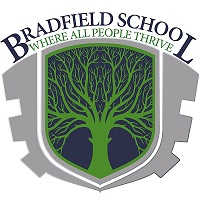RE
Intent
The curriculum Intent for RE helps students to understand the diverse world they live in and their own place in that world.
Lessons are equally accessible to students of any faith or none, and success is dependent on the ability to understand, analyse and evaluate, rather than on personal conviction.
We aim to support students in developing their own spiritual, moral, and social awareness by increasing their understanding of the complex issues and challenges faced by people from all walks of life within their own city and beyond. Our aim is to create and nurture an intellectual curiosity in pupils to develop a love of learning and understanding of their own place within society, both local and globally.
- The curriculum is designed to ensure that it spirals and is sequenced so that it allows pupils to see the links and differences between the six world major religions at KS3, thus the curriculum has been designed to provide opportunities in every lesson for young people to be engaged in views and beliefs, that may be similar or different to their own.
- In KS3 – Year 7 – we learn about the Abrahamic faiths in chronological order of when started to allow young people to see the connections, links and differences between them.
- In Year 8 young people study the Dharmic Faiths in chronological order of when started to allow them to see the connections, links and differences between them. The last topic studied in Year 8 is Practical Ethics – this topic provides students with ample opportunity to look at various ethical dilemmas and consider how the people of the six world major religions, may respond to the various ethical issues and so synthesis learning about the six world major religions. The topic also provides young people opportunities to build upon and further develop explanatory and discursive written skills, essential for success at KS4.
- KS4 - In Year 9 students start the GCSE course (AQA) -which, with only one lesson a week permitted on the timetable, provides time for students to fully complete the course over three years. The two religions chosen are Christianity (no choice) and Islam as this is the second most popular religion in the school and the local area – so pupils can see the links and connections between the two faiths and how that may impact on their surroundings.
- At both key stages lessons are designed to build upon and develop skills of explaining and evaluating – both in written and verbal form: providing students ample opportunities to use extended writing such as explaining and discursive to be able to engage in views, beliefs similar and different to their own.
Parents have the right to withdraw their child from Religious Education as outlined in section 71 of School Standards and Framework Act 1998. Any parent wishing to exercise this right must contact the Headteacher by emailing enquiries@bradfield.sheffield.sch.uk
Key Stage 3
| Year 7 | Year 8 | Year 9 |
|
Abrahamic Faiths:
|
Dharmic Faiths
Practical Ethics. |
|
Key Stage 4
Students work towards the AQA GCSE in RE, covering the following topics:
| Year 10 | Year 11 |
|
|
